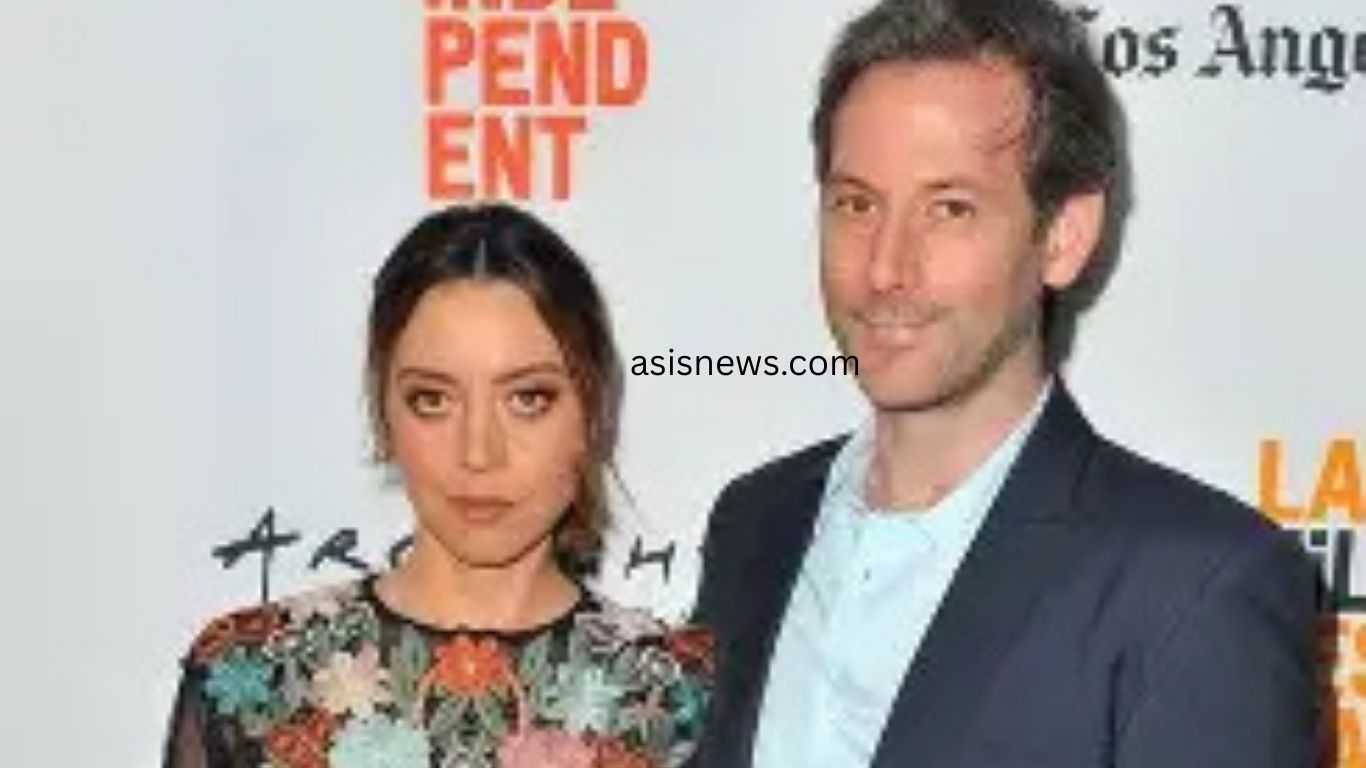Hollywood actress Aubrey Plaza is speaking publicly for the first time about the heartbreaking loss of her husband, filmmaker Jeff Baena. In an emotional conversation with longtime friend and Parks and Recreation costar Amy Poehler, Plaza revealed the raw and painful reality of navigating grief after Baena’s death by suicide earlier this year.
The 41-year-old actress, best known for her roles in Parks and Recreation, White Lotus, and the Marvel series Agatha All Along, joined Poehler on the August 19 episode of the Good Hang podcast. It was a heartfelt reunion filled with vulnerability, honesty, and support. Poehler, who has been by Plaza’s side through her most difficult year, gently brought up Baena’s passing and gave her friend space to share her truth.
Read More: Isabela Ferrer from It Ends with Us accuses Justin Baldoni of harassment in response to subpoena
A Year Defined by Loss
Amy Poehler began the conversation by acknowledging the tragedy openly. “To get it out of the way, people wanna see you and see how you are,” Poehler said. “They love you, and they wanna see you. You had this terrible, terrible, tragic year. You lost your husband. You’ve been dealing with that, and you’ve been looking for all different ways in which to feel and find support.”
Baena, a respected screenwriter and director, was just 47 when he died by suicide on January 3 at his Los Angeles home. His sudden passing shocked the entertainment world and left Plaza reeling. The couple had been together since 2011 and quietly tied the knot in 2020 after nearly a decade of partnership.
When news of his death became public, Plaza released a brief statement through her representative on January 6: “This is an unimaginable tragedy. We are deeply grateful to everyone who has offered support. Please respect our privacy during this time.”
For months following the tragedy, Plaza remained largely private, choosing to grieve away from the spotlight. Her recent conversation with Poehler marks the first time she has spoken at length about the devastating loss.
A Therapy Dog and a Lifeline
During the recording, Poehler noted that Plaza had brought along her beloved dog, Frankie. Referring to the pup as a “therapy dog,” Poehler emphasized how important Frankie has been for Plaza over the last year. Many grieving individuals turn to pets for unconditional love and comfort, and Plaza’s relationship with Frankie is no exception.
Animals often play an unspoken yet powerful role in healing. For Plaza, having Frankie by her side during moments of vulnerability — such as recording a podcast where she would speak about Baena — offered a small sense of grounding.
Facing Grief Head-On
When Poehler asked how she was truly feeling, Plaza didn’t sugarcoat her answer. “Overall, I’m here, and I’m functioning, and I feel grateful to be moving through the world,” she said. “I think, like, I’m OK, but it’s a daily struggle, obviously.”
Her honesty reflects what many widows and grieving partners experience — a duality of functioning in daily life while quietly carrying an immense emotional burden. Plaza noted that in that particular moment with Poehler, she felt “happy” and grateful for the companionship of a close friend. But she emphasized that grief is not linear and often feels like a never-ending cycle of waves.
A Metaphor for Grief
Perhaps the most striking part of Plaza’s conversation was her metaphor for grief. She compared her emotional state to the action-horror film The Gorge, starring Miles Teller and Anya Taylor-Joy.
“This is kind of a dumb analogy, and it was kind of a joke at a certain point, but I actually mean it,” she explained. “Did you see that movie The Gorge? In the movie, there’s a cliff on one side and a cliff on the other side, and there’s a gorge in between filled with all these monster people trying to get them.”
She continued, “I swear, when I watched it, I was like, that feels like what my grief is like. At all times, there’s a giant ocean of awfulness that’s right there. Sometimes I just wanna dive into it and be in it. Sometimes I just look at it. And sometimes I just try to get away from it. But it’s always there, and the monster people are trying to get me.”
The analogy captured the relentless, haunting presence of grief — something that is always nearby, whether acknowledged or not.
A Private Love Story
Plaza and Baena’s relationship was unique in Hollywood for its privacy. While many celebrity couples share their love stories openly, the two preferred to keep their bond out of the public eye. Baena, known for directing indie films like Life After Beth and Horse Girl, often collaborated with Plaza professionally, but their marriage was rarely discussed in interviews.
Friends described them as deeply supportive of each other’s creative pursuits. Plaza often credited Baena for grounding her and encouraging her career, while Baena found inspiration in Plaza’s comedic instincts and fearless performances. Their quiet love story made Baena’s sudden death even more heartbreaking for those who knew them personally.
Navigating Healing
For Plaza, healing remains an ongoing process. She admitted on the podcast that while she continues to work and move forward, the pain of loss is constant. “It’s a daily struggle,” she repeated, underscoring the long road ahead.
Psychologists often describe grief as an ocean — some days bringing overwhelming waves, other days calm waters. Plaza’s analogy of the gorge with “monster people” is a reminder that grief also carries elements of fear, unpredictability, and exhaustion.
Her decision to share these feelings publicly not only honors Baena’s memory but also opens an important conversation about mental health, loss, and resilience.
The Importance of Support
Throughout the interview, Poehler’s presence underscored the importance of community during grief. As a close friend and former colleague, Poehler created a safe environment for Plaza to speak freely. Their conversation highlighted how vital it is for grieving individuals to have supportive networks — friends who listen, validate, and help shoulder the pain.
Support systems, whether through friends, family, therapy, or community, can make the difference between isolation and gradual healing. Plaza’s story serves as a reminder that even those in the public eye need compassion and understanding as they navigate loss.
Frequently Asked Questions:
Who was Jeff Baena?
Jeff Baena was a screenwriter and film director known for projects like Life After Beth, Horse Girl, and Joshy. He was married to Aubrey Plaza and often collaborated with her on creative work.
How did Jeff Baena die?
Jeff Baena died by suicide on January 3, 2025, at the age of 47. His passing was confirmed by medical examiner records in Los Angeles.
When did Aubrey Plaza and Jeff Baena get married?
The couple began dating in 2011 and tied the knot in 2020 after nearly a decade together.
Has Aubrey Plaza spoken publicly about her grief?
Yes, Aubrey Plaza recently opened up about her grief on Amy Poehler’s Good Hang podcast, describing it as a “daily struggle.”
What metaphor did Aubrey Plaza use to describe her grief?
Plaza compared grief to the horror film The Gorge, explaining it felt like being surrounded by a constant ocean of pain with “monster people” always lurking nearby.
Does Aubrey Plaza have children with Jeff Baena?
No, Aubrey Plaza and Jeff Baena did not have children together.
How is Aubrey Plaza coping with the loss?
Plaza says she leans on her close friends, her dog Frankie (whom she calls her therapy dog), and her work to move forward, though she admits grief is always present.
Conclusion
Aubrey Plaza’s heartfelt reflections on the loss of her husband Jeff Baena reveal the raw and unfiltered reality of grief. By speaking openly on Amy Poehler’s Good Hang podcast, she reminds us that healing is not about forgetting but about learning to live alongside the pain. Her story sheds light on the importance of support systems, the power of honesty, and the courage it takes to share vulnerability. While Plaza describes her grief as a “daily struggle,” her strength, gratitude, and resilience offer comfort to others facing similar losses. Ultimately, her journey is a testament to love, memory, and the enduring human spirit.

